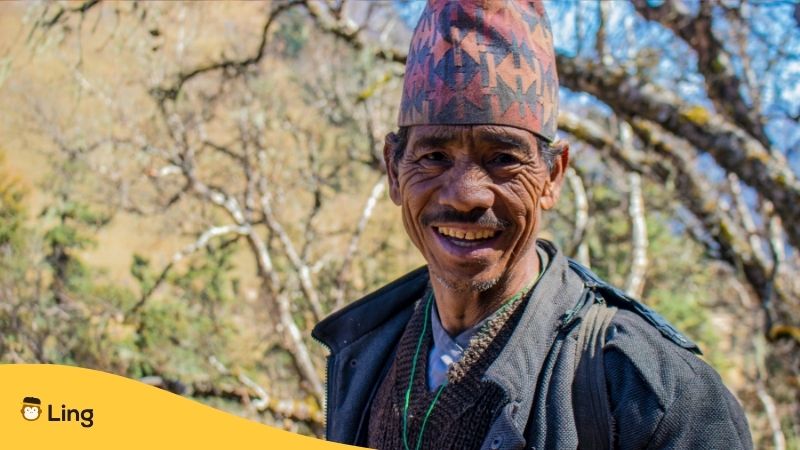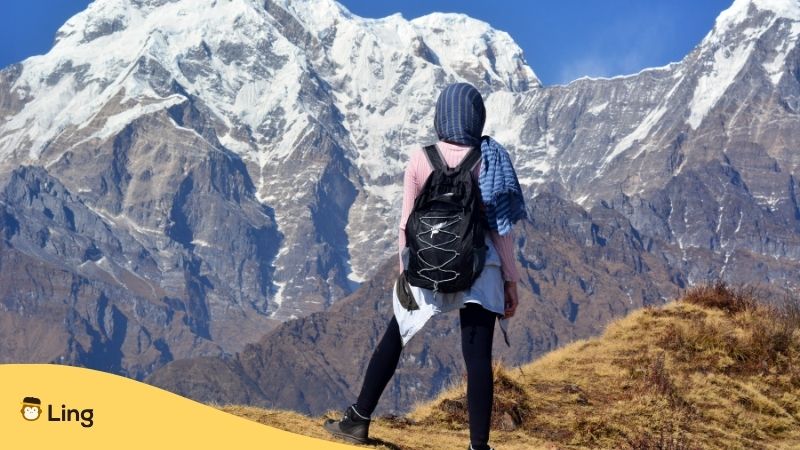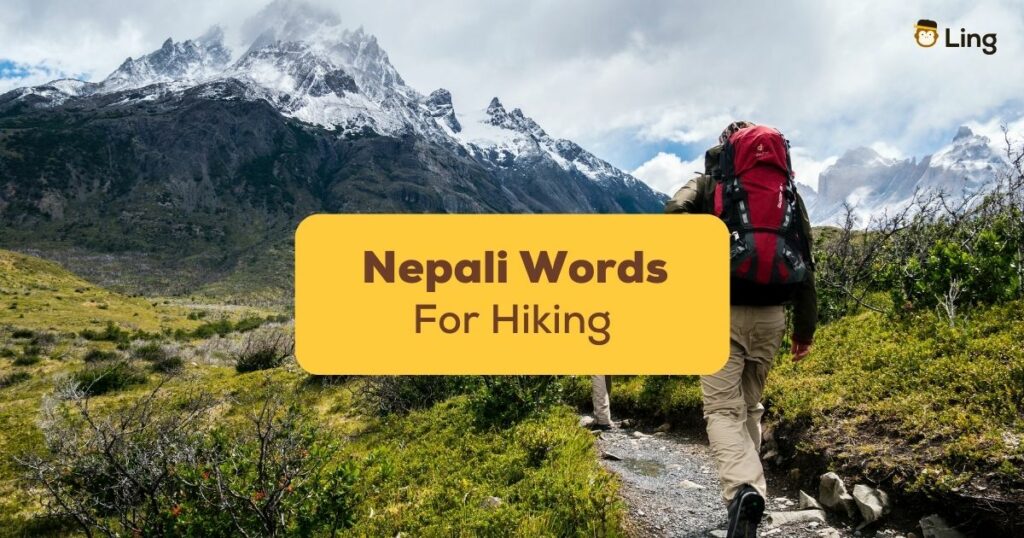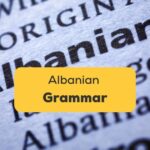Nepal is home to some of the world’s most famous trekking routes, including the Everest Base Camp, Annapurna Circuit, and Langtang Valley and as you embark on your hiking adventure in Nepal, it’s essential you have a few Nepali phrases and common Nepali words for hiking tucked away in your linguistic backpack.
While English is widely spoken in tourist areas, learning a few Nepali words and common Nepali phrases related to hiking can enhance your experience and form a better bond with the locals. So, this time we will be exploring the Nepali language of hiking, offering insights into the Nepali meaning of a few common words and phrases that will prove invaluable on your trekking journey.
Nepali Words For Hiking
Here is a list of Nepali words that you can add to your Hiking glossary when going on an hike in the majestic Himalayas.
The Universal Greeting – Namaste (नमस्ते)
Before delving into hiking-specific terminology, it’s crucial to start with the most fundamental word in Nepali – “Namaste.” This ubiquitous greeting means “hello”, “welcome” or “good morning” and is used in everyday interactions. Saying “Namaste” with folded hands (known as “Namaskar”) is a sign of respect and gratitude. Initiating your encounters with “Namaste” will instantly endear you to the locals, creating a warm and friendly atmosphere on a long walk.
Thank You – Dhanyabad (धन्यवाद)
Gratitude is a universal language, and expressing it in Nepali will be greatly appreciated. Whenever someone assists you on the trail or provides a service, a simple “Dhanyabad” goes a long way in acknowledging their efforts and kindness.
Food – Khana (खाना)
Hiking in Nepal involves experiencing local cuisine, which is an adventure in itself. “Khana” means food, and knowing this word will be invaluable when ordering meals at teahouses or restaurants along the trekking routes. Don’t forget to learn Nepali words for traditional Nepali dishes to try like “dal bhat” (दाल भात – lentil soup with rice) and “momo” (मोमो – dumplings) for a taste of local Nepali culture.
Water – Pani (पानी)
Staying hydrated is essential while hiking in Nepal’s diverse landscapes. “Pani” means water, and it’s a word you’ll use frequently to request water when visiting Nepal.

Hat – Topi (टोपी)
Nepali weather can be unpredictable, and it’s crucial to protect yourself from the sun or cold winds. “Topi” refers to a hat or cap, and it’s an essential item to carry on your trek.
Backpack – Jhola (झोला)
Your trusty companion on the trail is your backpack. “Jhola” signifies a backpack, and you’ll often hear it when discussing gear or organizing your belongings.
Torch – Tarca (टर्च)
In remote areas, electricity can be scarce, and a good torch becomes indispensable. “Tarca” is the word for a flashlight, and it’s an essential item for trekking, especially if you plan to stay in teahouses or lodges without a consistent power supply.
Supplies – Apurtiharu (आपूर्तिहरू)
When you’re discussing your trekking essentials or shopping for provisions, “Apurtiharu” is the word you’ll use to refer to supplies. Whether it’s food, water, or gear, these easy words will come in handy when communicating your needs.
Local Liquor – Raksi (रक्सी)
After a long day of hiking, you might want to unwind with a local beverage while enjoying a good night. “Raksi” is a traditional Nepali liquor made by many ethnic groups from grains or millet. While it’s a strong drink, it’s worth trying for a taste of local culture (in moderation, of course).
River – Nadii (नदी)
Nepal is crisscrossed by numerous rivers, and you’ll likely encounter them on your hike. “Nadii” means a river in the Nepali dictionary, and you’ll use this and related words when asking for directions to river crossings or water sources.

Glacier – Himanadi (हिमनदी)
For those embarking on high-altitude treks or mountaineering expeditions, glaciers are a common sight. “Himanadi” refers to a glacier, and understanding this word will help you communicate with Nepali people about the terrain and obstacles you may encounter.
Umbrella – Chhata (छाता)
If you find yourself trekking during the monsoon season, an umbrella can be a lifesaver. “Chhata” is the word for an umbrella, and it’s a practical item to shield yourself from the rain.
Tent – Pala (पाल)
For trekkers who prefer camping, “Pala” is the word for a tent. Whether you’re carrying your own or planning to rent one, knowing this term will help you arrange for accommodation while trekking in more remote areas.
Sleeping Bag – Sutne Jhola (सुत्ने झोला)
A good night’s sleep is crucial on a trek, and a warm sleeping bag is essential, especially at higher altitudes. Hiking in Nepali always needs a sleeping bag, and you can inquire about rentals or purchases at trekking gear shops.
Mountain – Pahada (पहाड)
Nepal is home to eight of the world’s 14 highest peaks, including Mount Everest. “Pahada” simply means mountain, and you’ll often find yourself gazing in awe at these majestic natural wonders.
While many Nepali people understand English, taking the time to learn a few Nepali words related to hiking can enhance your journey and foster meaningful connections with the people you meet along the way. From basic greetings like “Namaste” to practical terms like “Khana” for food, these words will serve as a bridge to a better experience. So, as you lace up your hiking boots and prepare for your next trek, remember these essential Nepali words, and you’ll be well-prepared for an unforgettable adventure in the land of the Himalayas.
Practice Nepali With Ling Before You Book A Trek
Ling is the ideal learning tool to have you feeling confident about your Nepali language skills in no time. Packed with fun games and quizzes, the Ling app keeps things fun while helping you to build on your reading, writing, and conversation. Try the Ling app at Google Play or App Store today!



































































